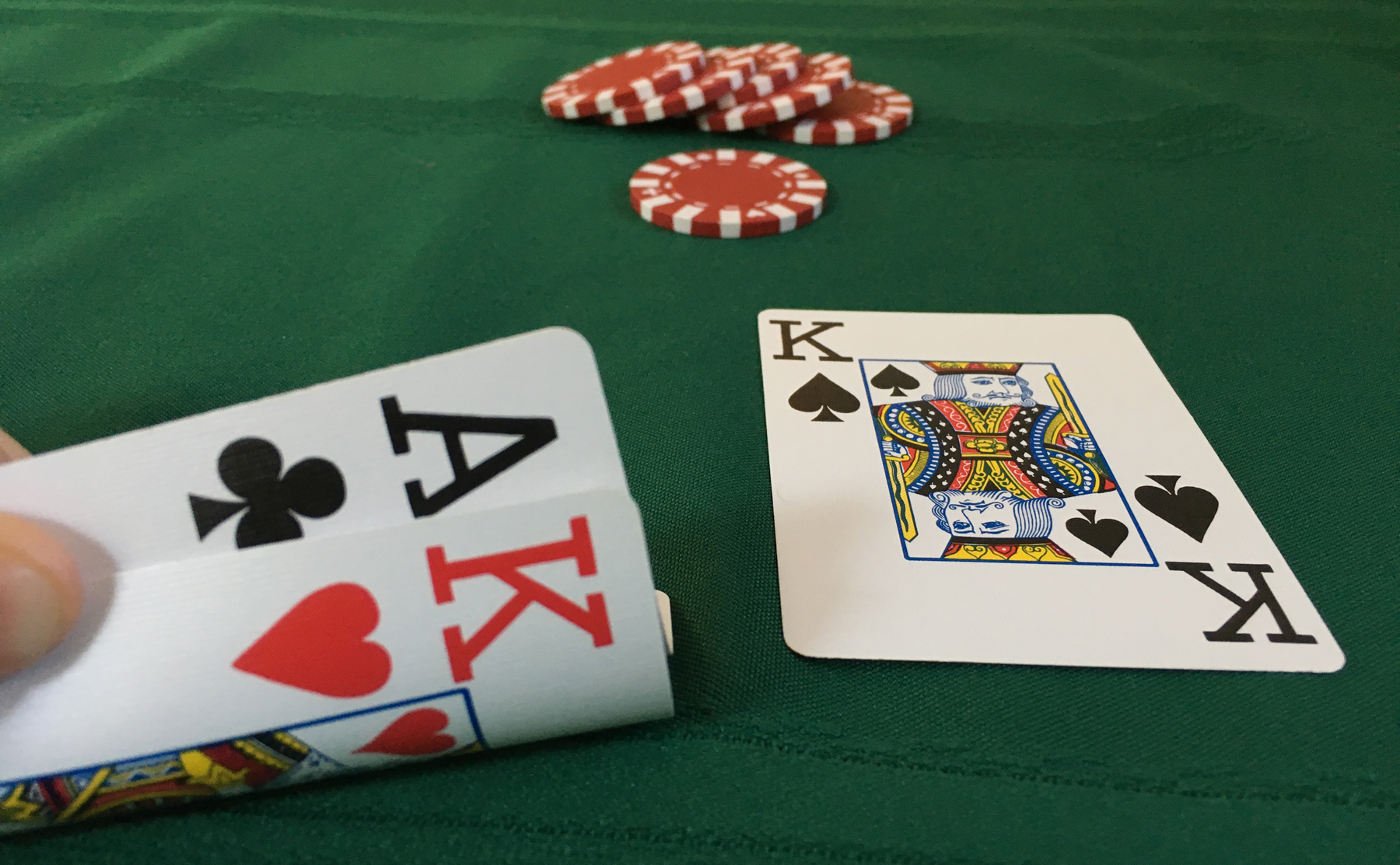Most Money Ever Won In A Poker Hand
- Most Money Ever Won In A Poker Hands
- Most Money Ever Won In A Poker Handheld
- Most Money Ever Won In A Poker Handicap
- Most Money Ever Won In A Poker Handed

If you’re considering becoming a professional poker player or are just love watching pros win stacks of cash, let Daniel Negreanu give you a reality check.
The legendary poker pro wrote a year-end blog with his results from 2017, revealing he had won over $2.7 million last year. That seems like a ton of money, right?
Not quite, per Negreanu:
This hand came about in 2018 as part of the Triton Poker Super High Roller cash game in Jeju, South Korea, featuring a $1 million buy-in. The game is played using the Korean Won, and there was plenty of cash “won” in this one. “Every battle is won before it is ever fought” – Sun Tzu. Poker, at its most simple, is a game where you play your cards against those of your opponent. There are a lot more variables involved in playing, but choosing the hands you play is at the very core of successful poker playing. Most would be happy with that, but Karas decided to continue his venture to Vegas now that he had a little extra spending money which to gamble with. Hitting the world famous Vegas Strip, he managed to take more than $40 million form the casinos playing poker, Baccarat and dice games.
Well, the truth is, if a player plays the full high roller schedule and cashes for $2 million, they are all but certain to have had a losing year, and that’s before expenses.
I felt like I had a decent year in terms of results, but when you break down the numbers into an actual profit vs loss, I essentially broke even!
Buyins: $2,874,164
Payouts:$2,792,104
Profit: -$86,140
Crazy, right? His $2.7 million didn’t even cover all of his buy-ins into events. Although he said most players don’t fund everything by themselves, he does pay his own way into events despite sponsorship deals.
Negreanu also broke down how he did this year in terms of cashing out in tournaments: He said he played in 71 events and cashed out in JUST 21 OF THEM! The previous year he went 10-for-49 and 11-for-49 in 2015. Yet when he tallied up his five-year total, he went 68-for-291 and made an $8 million-plus profit.

What does all that mean? If you can stomach all the losses and balance them with occasionally cashing in, all while affording the expenses, you could be a pro.
Read the full post here.

To quote the great political philosopher Cyndi Lauper, “Money changes everything.” Lauper’s recording was a cover of a song written by Tom Gray in 1979 and recorded by his band, “The Brains.” The aphorism dates to at least the 1870s and a book by American author Caroline Cheesebro’ called “The Foe in the Household.”
 '>1 And nowhere is that proverb more taken to heart than in a federal election, where billions of dollars are raised and spent on the understanding that money is a crucial determinant of whether or not a candidate will win.
'>1 And nowhere is that proverb more taken to heart than in a federal election, where billions of dollars are raised and spent on the understanding that money is a crucial determinant of whether or not a candidate will win.Most Money Ever Won In A Poker Hands
This year, the money has been coming in and out of political campaigns at a particularly furious pace. Collectively, U.S. House candidates raised more money by Aug. 27 than House candidates raised during the entire 2014 midterm election cycle, and Senate candidates weren’t far behind. Ad volumes are up 86 percent compared to that previous midterm. Dark money — flowing to political action committees from undisclosed donors — is up 26 percent.
Presumably, all that money is going to buy somebody an election. In reality, though, Lauper isn’t quite right. Political scientists say there’s not a simple one-to-one causality between fundraising and electoral success. Turns out, this market is woefully inefficient. If money is buying elections a lot of candidates are still wildly overpaying for races they were going to win anyway. And all of this has implications for what you (and those big dark money donors) should be doing with your political contributions.
The candidate who spends the most money usually wins
How strong is the association between campaign spending and political success? For House seats, more than 90 percent of candidates who spend the most win. From 2000 through 2016, there was only one election cycle where that wasn’t true: 2010. “In that election, 86 percent of the top spenders won,” said Sheila Krumholz, executive director of the Center for Responsive Politics, a nonpartisan research group that tracks campaign fundraising and spending.
Looked at this way, a campaign is like a dinner party, and fundraising is the plates and silverware. You may work hard. You may get a lot of other things right. But if everyone is eating four-star lasagna off the table with their hands, the party will still be a failure and remembered more for what it didn’t have than what it did.
Overall, advertising ends up being the major expense for campaigns, said Travis Ridout, professor of government and public policy at Washington State University. In 2012 and 2014, the average Senate campaign spent 43 percent of its budget on ads, he told me, and the average House campaign spent 33 percent. Presidential races spend an even bigger chunk of their budgets on advertising. In 2012, for instance, ads made up more than 70 percent of President Obama’s campaign expenses and 55 percent of Mitt Romney’s.
But that doesn’t mean spending caused the win
Most Money Ever Won In A Poker Handheld
Money is certainly strongly associated with political success. But, “I think where you have to change your thinking is that money causes winning,” said Richard Lau, professor of political science at Rutgers. “I think it’s more that winning attracts money.”
That’s not to say money is irrelevant to winning, said Adam Bonica, a professor of political science at Stanford who also manages the Database on Ideology, Money in Politics, and Elections. But decades of research suggest that money probably isn’t the deciding factor in who wins a general election, and especially not for incumbents. Most of the research on this was done in the last century, Bonica told me, and it generally found that spending didn’t affect wins for incumbents and that the impact for challengers was unclear. Even the studies that showed spending having the biggest effect, like one that found a more than 6 percent increase in vote share for incumbents, didn’t demonstrate that money causes wins. In fact, Bonica said, those gains from spending likely translate to less of an advantage today, in a time period where voters are more stridently partisan. There are probably fewer and fewer people who are going to vote a split ticket because they liked your ad.
Most Money Ever Won In A Poker Handicap
Instead, he and Lau agreed, the strong raw association between raising the most cash and winning probably has more to do with big donors who can tell (based on polls or knowledge of the district or just gut-feeling woo-woo magic) that one candidate is more likely to win — and then they give that person all their money.
Advertising — even negative advertising — isn’t very effective
This is a big reason why money doesn’t buy political success. Turns out, advertising, the main thing campaigns spend their money on, doesn’t work all that well.
This is a really tough thing to study, Ridout said, and it’s only getting harder as media becomes more fragmented and it’s less clear who saw what ad how many times and in what context. But it’s also something people have been studying for a long time. Driven by fears that attack ads might undermine democracy by reducing voter turnout, researchers have been looking at the impacts of negative advertising since the 1990s. And, beginning around the mid-2000s, they began making serious progress on understanding how ads actually affect whether people vote and who they vote for. The picture that’s emerged is … well … let’s just say it’s probably rather disappointing to the campaigns that spend a great deal of time and effort raising all that money to begin with.
Take, for example, the study that is probably the nation’s only truly real-world political advertising field experiment. During Rick Perry’s 2006 re-election campaign for Texas governor, a team of researchers convinced Perry’s campaign to run ads in randomly assigned markets and then tracked the effect of those ads over time using surveys. Advertising did produce a pro-Perry response in the markets that received the treatment. But that bump fizzled fast. Within a week after ads stopped running, it was like no one had ever seen them.
Want the latest politics news? Get it in your inbox.
What’s more, Ridout said, ads probably matter least in the races where campaigns spend the most on them — like presidential elections. Partly, that’s because the bigger the election, the more we already know about the people running. It’s not like anyone went into the 2016 presidential race confused about who Donald Trump and Hillary Clinton were, for example. Also, partisan politics are just really powerful: In 2016, about 7 in 10 voters identified as either a Democrat or Republican, according to exit polls; 89 percent of Democrats voted for Clinton and 90 percent of Republicans voted for Trump. Even in congressional races, most voters aren’t persuadable. Instead, when there’s a shift from one party to another, it’s usually more about national waves than what is happening in individual districts, Bonica said. So the ad run by your would-be congressperson matters less than the overall, national sense that this year is really going to swing for one party or another.
There are times when money does matter, though
“Money matters a great deal in elections,” Bonica said. It’s just that, he believes, when scientists go looking for its impacts, they tend to look in the wrong places. If you focus on general elections, he said, your view is going to be obscured by the fact that 80 to 90 percent of congressional races have outcomes that are effectively predetermined by the district’s partisan makeup — and the people that win those elections are still given (and then must spend) ridiculous sums of money because, again, big donors like to curry favor with candidates they know are a sure thing.
In the 2016 campaign for Wisconsin’s 1st Congressional District, for example, House Speaker Paul Ryan plunked down $13 million winning a race against a guy who spent $16,000. Across the country that same year, 129 members of Congress were elected in races where they spent hundreds of thousands, even millions, of dollars — and their opponents reported no spending at all. It wasn’t the cash that won the election. Instead, challengers likely chose to not invest much money because they already knew they would lose.
But in 2017, Bonica published a study that found, unlike in the general election, early fundraising strongly predicted who would win primary races. That matches up with other research suggesting that advertising can have a serious effect on how people vote if the candidate buying the ads is not already well-known and if the election at hand is less predetermined along partisan lines.
Basically, said Darrell West, vice president and director of governance studies at the Brookings Institution, advertising is useful for making voters aware that a candidate or an issue exists at all. Once you’ve established that you’re real and that enough people are paying attention to you to give you a decent chunk of money, you reach a point of diminishing returns (i.e., Paul Ryan did not have to spend $13 million to earn his seat). But a congressperson running in a close race, with no incumbent — or someone running for small-potatoes local offices that voters often just skip on the ballot — is probably getting a lot more bang for their buck.
Another example of where money might matter: Determining who is capable of running for elected office to begin with. Ongoing research from Alexander Fouirnaies, professor of public policy at the University of Chicago, suggests that, as it becomes normal for campaigns to spend higher and higher amounts, fewer people run and more of those who do are independently wealthy. In other words, the arms race of unnecessary campaign spending could help to enshrine power among the well-known and privileged.
“That may be the biggest effect of money in politics,” West wrote to me in an email.
So you probably missed the window to have your donation really affect this election
Most Money Ever Won In A Poker Handed
Look, donating to congressional and presidential campaigns is not, across the board, a great investment. Fortune magazine told rich people as much back in 2014, pointing to big donors like billionaire Tom Steyer — who poured $50 million into TV ads for various candidates and got less than half of them elected. If big donors wanted their dollars to actually affect the outcome of elections, Forbes wrote, they should focus spending on issue referendums, small races and long-term strategies (making sure state-level redistricting ensures highly predictable partisan elections at the national level, say).
And researchers have similar advice for “petite” donors. The best time to donate is early on in the primary, Bonica said, when out-of-the-gate boosts in fundraising can play a big, causal role in deciding who makes it to the general election. At this point in the cycle, not only are most general election races in the hands of partisan district power, but ads start to be less and less effective. If the Rick Perry study made you think it’s best to advertise the week before an election — well, at that point, pretty much everybody has made up their minds, and studies show ads don’t have much effect at all.